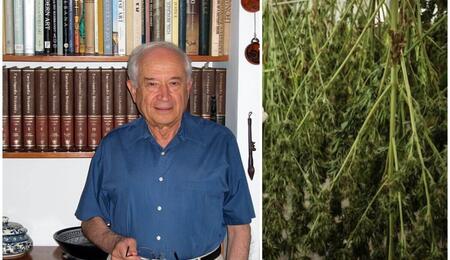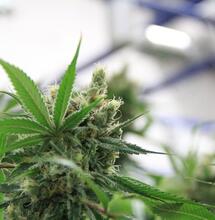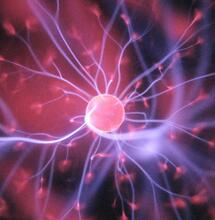Raphael Mechoulam, Pioneer of Cannabis Research

Dr. Raphael Mechoulam, widely known as the ‘Father of Cannabis Research’ sadly left us in March this year. On Nov. 5, he would have turned 93. Mechoulam dedicated his life to researching cannabis and diving into the many unknowns and secrets of how the plant functions and how it works with our body. Our understanding of cannabis today would have not been possible if it wasn’t for the lifelong dedication of the professor, who, even in his tenth decade of life, was still very much involved in what he described as the ‘third stage’ of cannabis research.
Dr. Raphael Mechoulam was a true pioneer of cannabis research. He boldly went where no other scientist had gone. He was the first to identify the structure and function of key compounds found in cannabis. The Israeli chemist died on March 9 in his Jerusalem home at the age of 92.
Much of the scientific insights and knowledge that we have about cannabis today are thanks to the work of Professor Mechoulam and his truly international team. An exquisite mind, Dr. Mechoulam always asked the right questions, guiding the research on cannabis to the next important point that needs an answer. It’s a journey that has resulted in numerous scientific studies and findings that largely shaped the modern therapeutic application of cannabis.
Dr. Mechoulam was not merely interested in finding out more about the plant. Far beyond that, he was interested in how to use it as medicine. A highlight from his clinical trials include his research in Brazil back in 1980 when he used CBD to treat people with epilepsy. The outcome of the trial was success. None of the participants in the study reported seizures in the months after taking CBD.
Mechoulam’s Fascination with Cannabis Was Always Scientific
The professor’s pioneering work with cannabis started in the early 1960s, before the popularity of marijuana (and other drugs) overtook the world, a phenomenon largely propelled by the Hippie movement. In those days, a lot of strains native to Asia reached the West thanks to travelers who took the Hippie Trail.
While the propaganda against the use of cannabis intensified in the following years, and notably here in the U.S. the ground was prepared to launch the War on Drugs, Professor Mechoulam simply moved forward in his quest to find out more about the secrets of the plant and what made it so special.
His fascination with cannabis never was cultural. He was rather driven by the scientific curiosity to learn more about the chemicals in cannabis and hemp, and that curiosity eventually took him farther than anyone else.
At the time Mechoulam started working on cannabis, there was without doubt a huge gap in understanding the plant.
Mechoulam’s lab in Jerusalem has been active since 1964. The plant compound THC was only partially known when he started working. By that time, substances such as morphine and cocaine were isolated and known to science for more than a hundred years, but not THC, which in the words of the professor has made a “strange situation.” Cannabis has been widely used but not investigated properly.
“When something, which is not being so well known, is being so widely used, people come out and start asking questions: how, where, what are the types of diseases it can do, what is the scientific background,” Mechoulam said in a 2018 interview for the documentary film “CBD Nation.”
Asked whether he felt pressure about making new discoveries, he sounded very down to earth. “I don’t think we have to find new things all the time,” he said in the interview. “We do things and sometimes they succeed, sometimes they don’t. It depends on what we are doing.”
In his contemplations on cannabis research, the professor has said on many occasions that there have been three stages of research so far, and we are currently in the third stage.
Work on the plant and its chemistry, or isolating compounds such as THC, was the first stage of research. Answering questions such as why do people get high from marijuana, or why THC makes you high and why CBD doesn’t, would have been part of that effort. This part has now been completed.
The flow of work took Mechoulam and his close associates on a discovery journey where they identified receptors in the human body that interact with and activate the cannabinoids. They continued looking for compounds that our bodies release to activate the cannabinoids. In the view of the professor, that’s the second stage of research. Not the compounds that cannabis produces, but the compounds that we produce and which cause a lot of effects.
One of the most important discoveries in the second stage of cannabis research was identifying anandamide, one of the main endocannabinoids that we produce. Anandamide is a completely different chemical from the compounds found in cannabis, but it has the same activity essentially.
“Now we have moved into the third stage of cannabis research, and there are very few people interested in that stage at the moment,” Mechoualm said in the interview for “CBD Nation.”
The third stage is about working on compounds that are somehow related to the endogenous cannabinoids but have a huge effect in many many other situations, he said. It could be compounds that add to the work of the immune system, or compounds that have anti-addiction quality.
An example given by Dr. Mechoulam in the 2018 interview is an anti-addiction compound, already isolated by that time, that tries to block nicotine addiction and that also tries to block the effects from that addiction.
“Our body makes a compound that tries to block nicotine addiction and tries to block the effects that are caused by addiction, the effects that are caused after one stops taking an addictive [substance]. It doesn’t succeed always, but it apparently sometimes it does succeed,” he said.
His brilliance in asking the right questions comes into the spotlight during the interview. Mechoulam says that “very little work has been done on those who are not addicted.” He points out that we have with different addictive substances only partial addiction, and the question we need to ask is why only some people get addicted, and others don’t. Mechoulam’s theory is that the body produces many more compounds that block addictions. Then, if the body produces such anti-addictive chemicals, can we use them?
And that’s just the tip of the iceberg in this third stage of research. Dr. Raphael Mechoulam has left an unmatched legacy in the domain of cannabis science. Something that his collaborators and followers will take many more years to succeed in finding the correct answers. For his part, Mechoulam has truly defined an entire era for modern cannabis.
Also read on Soft Secrets:
- Father of Cannabis Research Dies at 92













